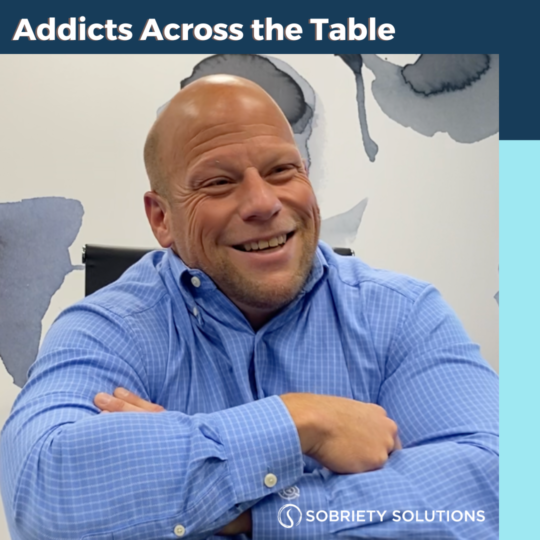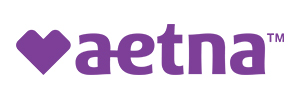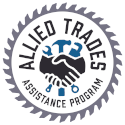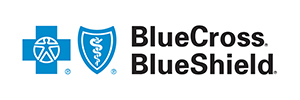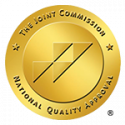True stories from those who have been affected by addiction
Steve is a recovering alcoholic and drug addict who currently works at Moving Forward Sober Living and is a former participant of Sobriety Solutions, a family-owned and operated treatment program focused on Substance Use Disorders and Co-Occurring Disorders. Steve sat down with Consumer51’s, Justin Butler, for a conversation focused on his road to recovery.
"But my road in recovery, I’m not sure where it’s going. That story hasn’t been written yet. But I can tell you this, I love the road I’m on."
Justin: Let’s start at the beginning. What can you tell us about yourself?
Steve: I was seeking treatment for 25 years of alcohol addiction and drug abuse. I have a long story. I’ve been in and out of recovery and Alcoholics Anonymous rooms for 25 years.
When I was younger, I’d go into treatment to get people off my back. I’d go in there, get some food, warm up, and leave.
I’ve done everything under the sun. It all usually started with drinking. I drank first, and then all hell broke loose; I’ve lost relationships, family members, jobs. Until I started losing things, I didn’t realize I had a problem. If you stay in active addiction long enough, you’ll lose everything, and that’s exactly what I did.
I resorted to stealing, pawning things, and anything that wasn’t nailed down. I pawned all my mom’s jewelry. I have five DUIs. I’ve been in and out of different court systems.
At this point, it helps me help out new guys coming into treatment. I have a sponsor who I meet with every Wednesday morning. I’ve got a good network now of sober friends and coworkers to lean on.
My story is long, agonizing; I’ve hurt a lot of people. There are a lot of people I can’t get back. I’ve tried to take care of my side of the street now, and if they don’t want to forgive me, I’m okay with that.
Now, I’m somebody my brother can call to watch the kids. Before, there was no way I’d ever get that phone call. You’re not leaving your kids with an alcoholic drug addict. I’m a dependable brother and somebody that other people can lean on now.
Justin: When you started, partying and drugs were more recreational. Is that a correct assumption?
Steve: I had a full scholarship for golf at Temple University. The first weekend I moved in was the first time I ever did cocaine. And it’s taking 25 years to stop it. It started as a party drug, but eventually, I couldn’t stop it, and I was doing it every night of the week.
Justin: When it turned to every day, was it a group, or just you? Did you have a party support group?
Steve: I make friends easily. I get along with a lot of people. It was never hard for me to find someone. It started with me, and I’d run into others with drug addiction. Drug addicts can always find drug addicts. It was nicer to get high with someone else. I was a chameleon. Whoever was there and wanted to join the party, I was down. I was ready.
Justin: There came the point when you went to your first Alcoholics Anonymous meeting. When was that?
Steve: The first AA meeting I went to was at the Flourtown center above a bar. I was there because it would get my mom off my back, and it gave the illusion that I was trying to get help. It wasn’t long before I went into my first treatment center at 23-24.
When I went in there, I came out with more numbers and addresses of people who I could get messed up with. By no means was I in treatment to get help or improve myself. It would help with the judges, court cases.
I would guess I’d been to about 30 different treatment centers. It wasn’t until the mid-30s that I cared about getting help. I thought I’d be able to get it to a social weekend thing. I finally stopped when I went into a state run facility at 35, and I snuck a bottle of vodka into the waiting room and got too drunk. I started pouring vodka into people’s cups in the waiting room, and the police came, sent me to the state hospital. They 302-ed me.
I went into the dual diagnosis unit. I got a social worker. I knew what to say to get what I wanted, but the social worker wasn’t buying it for the first time in my life. I think, in some ways, that was my rock bottom. I had to throw my hands in the air and ask for help. I still work on it every day because I’m no good to myself or anyone else if I don’t.
Justin: Sounds like the social worker made a big difference?
Steve: Huge! I wish I knew her name and that I could thank her. With her, I waved the white flag. You don’t recover at 35 the same way you do at 20.
My sponsor today was in my first meeting ever. They knew I was high, but there were just happy that I was there or alive. If I hadn’t got to Sobriety Solutions, I would have ended up dead or in prison. That’s where my story was taking me.
Justin: What is it about Sobriety Solutions?
Steve: It comes down to the people. Obviously, it comes down to me. If I don’t want to do it, I won’t. They gave me every resource available. There was nothing that wasn’t made available to me.
They are good people. Steve Kushner, I would call him up, and he never gave up on me. They care; you’re not a number or a face. They were extremely supportive. I could call these guys day or night, and they’d be there for me. I know they would do that for anyone willing to put in the work.
Justin: You mention you have a strong community of sober people around you. How important is that?
Steve: That’s hugely important. It’s only as helpful as I let it. If I feel like I’m going to use, and I don’t call them, it doesn’t help me. I have to be the one to pick up the phone or get to a meeting. I couldn’t put a number on how important they are to me. I realize how grateful and fortunate I am to have those people.
There is light at the end of the tunnel. You can do this for the rest of your life. But I take it one day at a time, and I try to live it that way. It’s incredibly doable. If you’re sober, you’ve got every opportunity in the world.
Justin: You said you worked harder at being high than being sober. But you’re saying on the other side. Is it easier to be sober?
Steve: It wasn’t that hard to get sober. I had to go to meetings and do the work. And that’s how it started, and you look back, and you’ve made progress.
I jumped through a bunch of hoops, stealing, lying, to get that next high or next drink. Now I’ve got a community I can call on, and I’m someone that people in recovery can call. It’s a feeling that I can’t put into words, having others lean on you. With the stuff out there now, it’s life or death. Fentanyl, it’s really bad.
Justin: How’s your relationship with your mom now?
Steve: My relationship with my mom is great. I’ll never be able to pay her back. I’ll stop by once a week and give her a little something. Maybe some money to get her hair done, as a way to try to pay her back. All she’s ever wanted for me was to be sober. I like feeling that she doesn’t have to worry about me when I come over.
Justin: There are a lot of moms and family members out there. Any advice for them?
Steve: If you tried, you can always love them. But you can love them from afar for a little while. I know it’s gut-wrenching, but the person struggling has to want to do it for themselves. Don’t stop loving them; call and check-in, but don’t enable them. Be there for them when they genuinely want to get help.
The sad part about this disease is sometimes people never decide they want to get help.
It comes down to the individual. They have to want to get sober for themself and put in the work. And it’s not as much work as you think it might be like I said before.
If you want to get sober, you’ll do whatever it takes. It felt like I was giving up my life, but I was actually gaining life, the life I really wanted.
Justin: What’s next for you?
Steve: I try to pay it forward. I’m not perfect at it, but I try to be the best version of myself every day. My road to addiction was leading me to death or prison.
But my road in recovery, I’m not sure where it’s going. That story hasn’t been written yet. But I can tell you this, I love the road I’m on.
Struggling with Addiction?
Everyone is different, so effective treatment options are tailored to each individual in order to meet their specific needs and goals. The recovery process takes time and focus, and our behavioral therapies work.
We pride ourselves on our diversity at Sobriety Solutions. With staff from different backgrounds, we’re able to provide personalized care for each patient. You don’t have to fight this alone. We can help. Call us today (833) 347-1652.

